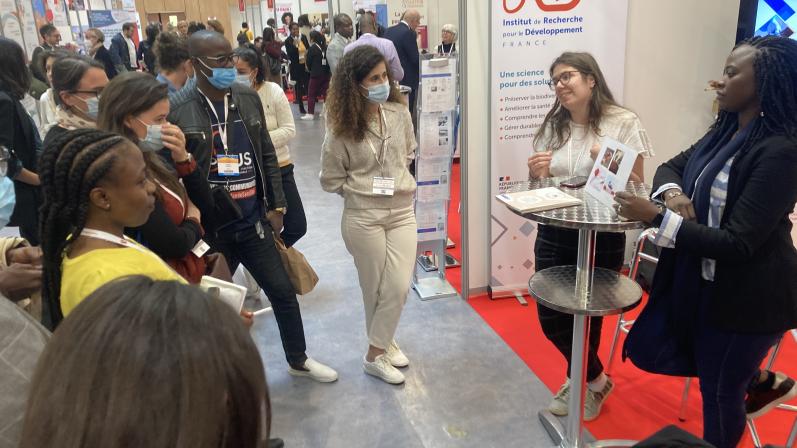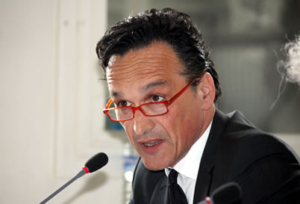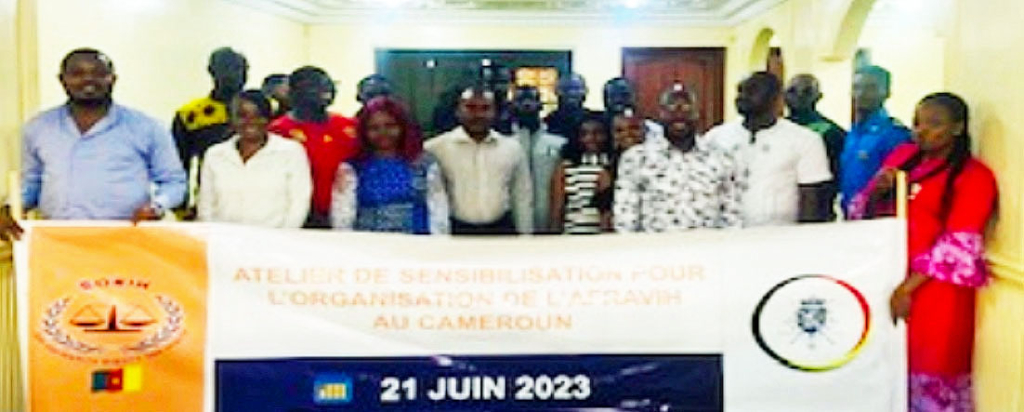Cameroon: The challenge of holding an anti-AIDS conference in an anti-gay nation
Courtney Stans is the pseudonym for a Cameroonian human rights…
How to ensure safety for visiting AIDS experts

The often-homophobic central African nation of Cameroon is gearing up for the challenge of hosting an international conference focused on combatting HIV and AIDS.
Next year from April 16 to 19, the Cameroonian capital Yaoundé will be the site for the biennial conference of AFRAVIH, the Francophone Alliance of Health Care Stakeholders against HIV — an event of particular importance to Cameroon’s LGBTI community.

However, international visitors traveling to Cameroon to promote progress on health care and human rights can face hostility. Last month, a barrage of opposition from Cameroonian officials and others led to the cancellation of a planned visit by Jean-Marc Berthon, the French ambassador for LGBT+ rights. Cameroonian civil society organizations had invited him to visit to discuss gender issues.
Last month, looking ahead to the AFRAVIH conference, the Cameroonian health and human rights advocacy organization SOS Solidarity Rights and Health held an awareness-raising workshop for law enforcement agencies and the judiciary. Its goals were to inform workshop participants about the upcoming AFRAVIH and to assess challenges involved in preparing for it. The Belgian Embassy provided support for the event.
Facilitator Teddy Abia told the workshop about challenges posed by the conference, during which Cameroon will welcome people from all walks of life, including key populations most at risk for HIV.
Among the challenges:
- Cameroonian laws affecting key populations, including transgender people and men who have sex with men.
- Hostility toward LGBTI people based on religion, culture and tradition.
- Providing security against anti-LGBTI violence and aggression.
- Combatting defamation and disinformation.

Law enforcement personnel at the workshop expressed their opposition to homosexuality and noted Cameroon’s law against same-sex intimacy. Visitors from foreign countries should respect Cameroon’s laws and not attempt to impose their laws or cultures on Cameroon, they said.
They recommended a plea to top officials to reduce homophobia in society, since police and courts only enforce the laws that leaders enact.
The workshop focused on the goal of creating an environment in which participants at the AFRAVIH conference can come and go safely and without worries.
These are some of the methods the workshop discussed for attaining that goal:
- Communicate with law enforcement authorities to inform them about the conference.
- Request extra security before, during and after the event.
- Inform international visitors ahead of time about Cameroonian laws in order to avoid any ambiguity.
- Hold more such awareness-raising sessions.
- Inform transportation workers, airport staff, supermarkets, etc.
In a welcome address, Belgian Ambassador Myriam Dulieu said that, since Cameroon will be hosting a major public health event, so it’s important that everyone pull their weight.
Courtney Stans, the author of this article, is a Cameroonian journalist who writes under a pseudonym. Contact her at info@76crimes.com.




